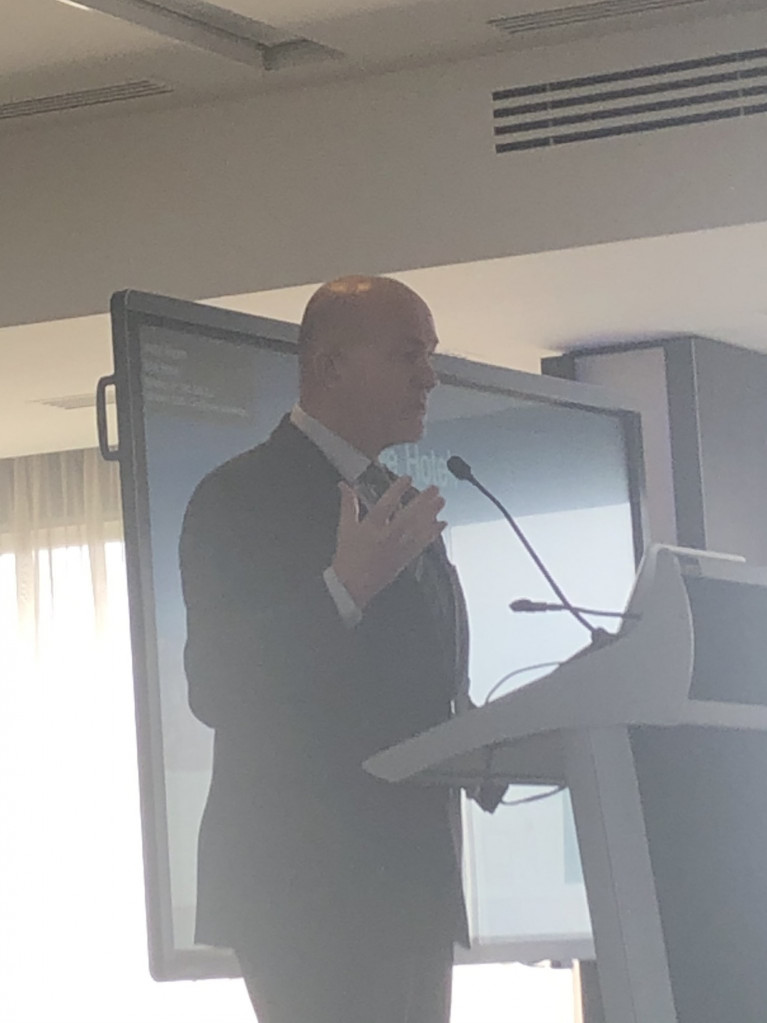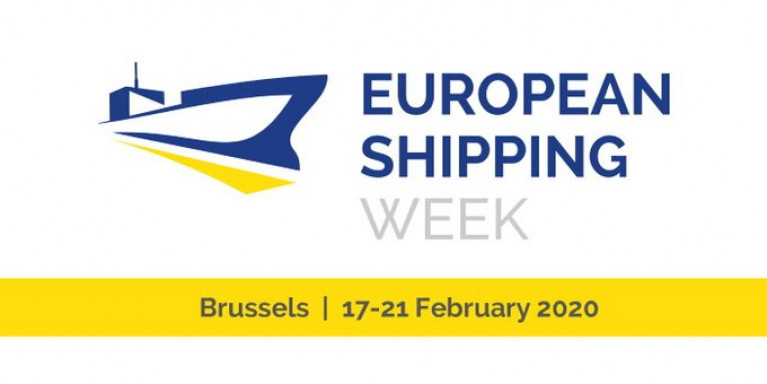Displaying items by tag: ESW2020
Ports Organisation's Position Paper on European Green Deal Objectives in Ports Revealed At ESW2020
The European Sea Ports Organisation (ESPO) has published its Position Paper on the European Green Deal objectives in ports.
The publication yesterday of EPSO's position paper fits into the European Shipping Week (ESW), currently taking place in Brussels.
In the framework of the ESW, ESPO and ECSA have organised today a workshop on “Decarbonising the shipping industry: What’s already happening and how can we help accelerate it?”.
The Executive Summary of the ESPO Position Paper reads as follows:
1. European ports welcome Europe’s ambition to be the world’s first net zero emission area by 2050. This ambition must be delivered in the most effective way. The competitiveness of Europe’s economy must be safeguarded. Achieving this objective will require an unprecedented level of cooperation across all policy departments and stakeholders.
2. European ports are at the crossroads of supply chains, are clusters of energy, industry and blue economy. They can be a key strategic partner in making the European Green Deal happen.
3. The greening of the shipping sector is a priority for European ports and Europe’s ports are committed to playing their part in helping the shipping sector to make this transition. Close cooperation between ports and shipping lines is required. This cooperation is also largely dependent on decisions of energy producers, energy providers and cargo owners.
4.European ports are diverse and there is no one approach which can be mandated for all ports. Instead, each port should develop a roadmap appropriate to its particular circumstances to prepare for the energy transition of shipping.
5. A goal-based and technology neutral approach is needed to ensure the uptake of clean fuels for shipping, support innovation and avoid stranded assets.
6.A gradual approach should be developed to reduce emissions at berths with an initial focus on berths close to urban areas and a focus on particular segments such as cruise ships and ferries. But such an emission reduction standard at berth is in itself not sufficient to achieve the decarbonisation of shipping. Over time, the objective of zero emissions at berths is achievable. By 2030, CO2 emissions from ships at berth and in ports should be reduced by 50% on average and across all segments of shipping.
7. Onshore Power Supply (OPS) should be encouraged as an important part of the solution. However, alternative solutions which achieve the same objectives should be encourages and allowed.
8. LNG’s role as a transition fuel should be recognised and certainty is needed about the support for investments made from 2021 to at least 2027.
9. Given the international nature of the shipping sector, a global approach is essential if market-based measures are to succeed. The EU should increase the pressure on the IMO to roll out meaningful measures by 2023. ESPO believes that any European proposals such as an Emission Trading Scheme (ETS), a levy or an innovation fund must be thoroughly examined in view of safeguarding the competitiveness of the EU port sector.
10. The review of the Energy Taxation Directive should support the uptake of all sustainable clean fuels, including OPS, by introducing a permanent tax exemption for all of them.
11.ESPO fully recognises and supports the role of rail and inland waterway transport as sustainable hinterland modes for freight. Motorways of the Sea and Short Sea Shipping can however be just as effective as rail and inland waterways in providing an alternative to road transport. In addition, pipelines can play a crucial role in the transport of certain modalities and the implementation of certain decarbonisation technologies.
12. Many European ports are important clusters of energy and industry. These ports are players and partners in achieving the energy transition. Greening “the port” means much more than greening the transport side. All industry players in the port should have their agendas, goals and plans and the port managing body must support the industries in the port in their pathways to a more sustainable future.
13. Seaports and waterborne transport should be seen as a priority in ensuring resilience to climate change. In that respect, European ports welcome the European Green Deal’s commitment to adopt a new and more ambitious strategy on adaptation to climate change.
14. Digitalisation will increase the transparency in the supply chain and can help create awareness of the carbon and environmental footprint of the whole supply chain. By improving the communication, gathering and exchanging real-time information among different parties, logistics processes can be optimised and transport infrastructure and means (avoiding empty trucks, trains and ships) can be used in a better way. Digitalisation must be seen as an additional instrument to meet the Green Deal objectives.
15. A strong MFF is essential for Europe to invest in a sustainable future. Getting an agreement on a strong MFF must show that both European and national policy makers walk the talk. Extensive support from the Connecting Europe Facility (CEF) is an absolute prerequisite for port investments, especially if there are mandatory provisions on the installation of certain technologies. Both core and comprehensive TEN-T ports should be eligible. Support will also important for turning port areas into clean energy hubs and for ensuring connectivity to clean energy grids.
The full ESPO Position Paper can be read here.
European Shipping Week: Event on Decarbonisation of Shipping
The European Sea Ports Organisation (ESPO) is co-organising an event on decarbonisation of shipping as part of the European Shipping Week (ESW).
The event organised in conjunction with the European Community Shipowners' Association (ECSA) will take place in 19 February from 11:00 to 14:00 in Brussels.
ESPO will introduce and moderate a session on ports’ perspective with regard to decarbonisation of shipping where three ports will present their views. The European port sector will be also represented in the panel discussion with shipping industry stakeholders.
To get more information about the event and how to register, please consult the webpage of the event here.
EWS, organised by ECSA along with other maritime stakeholders, takes place in Brussels from 17 to 21 February 2020. ESW is a forum for EU stakeholders and policy makers to discuss and exchange on matters related to maritime transport.
To get more information about ESW, please consult the website of the conference here.































































